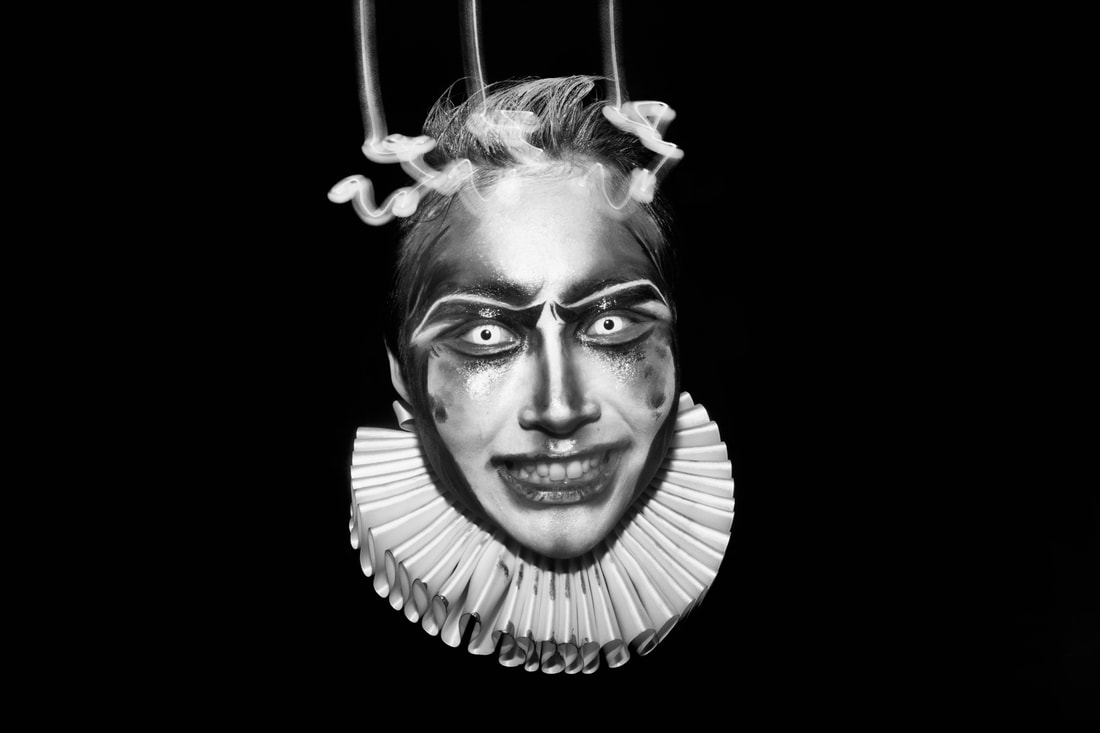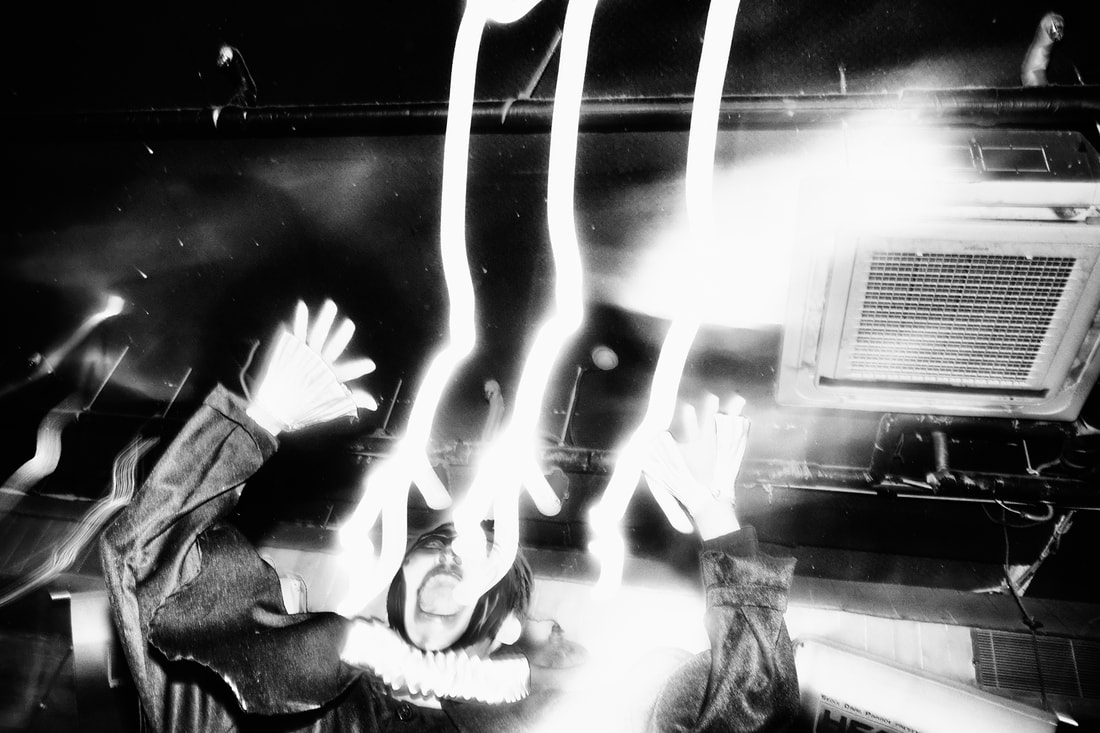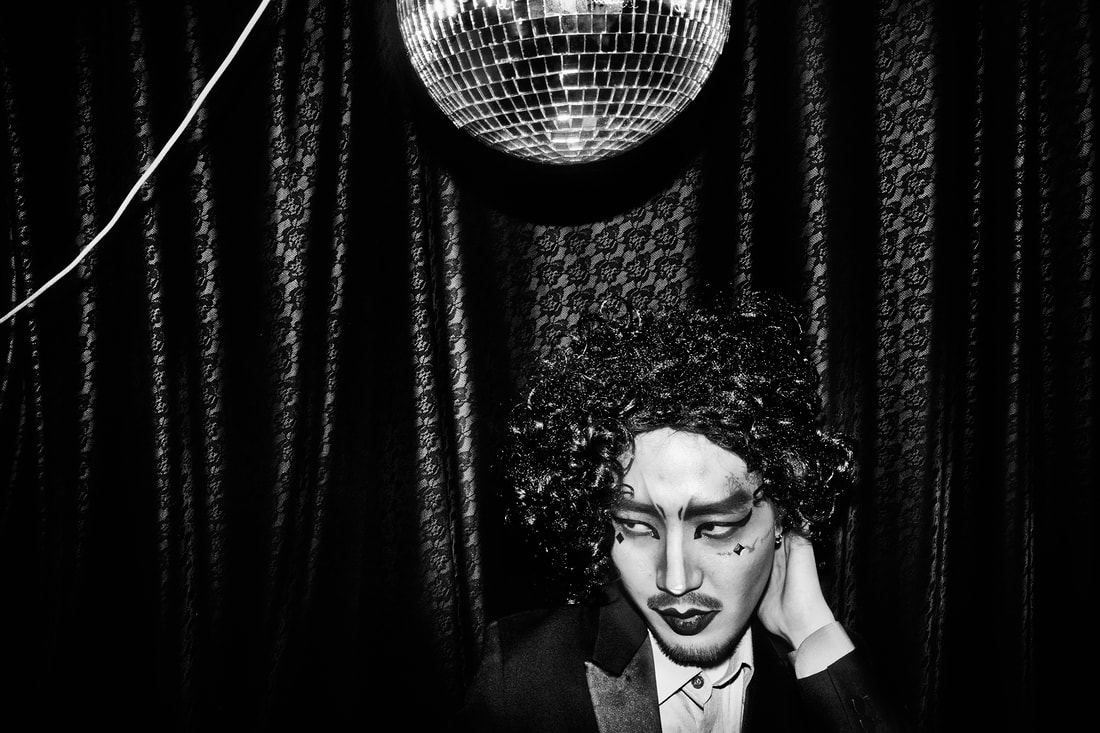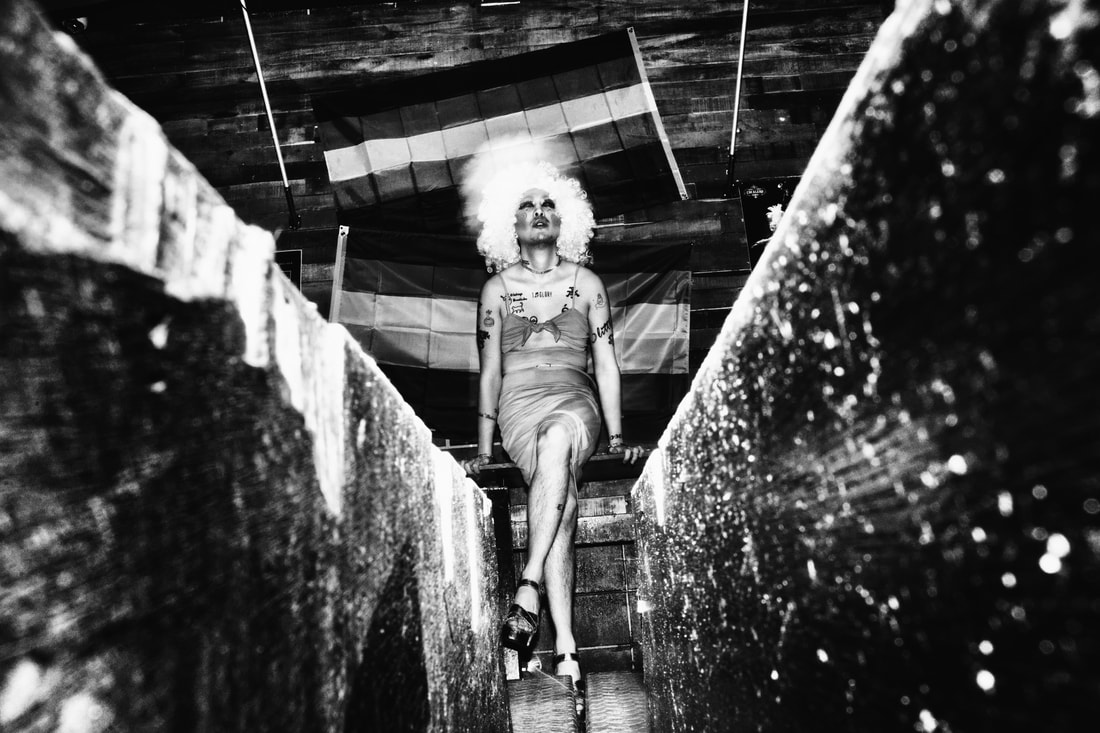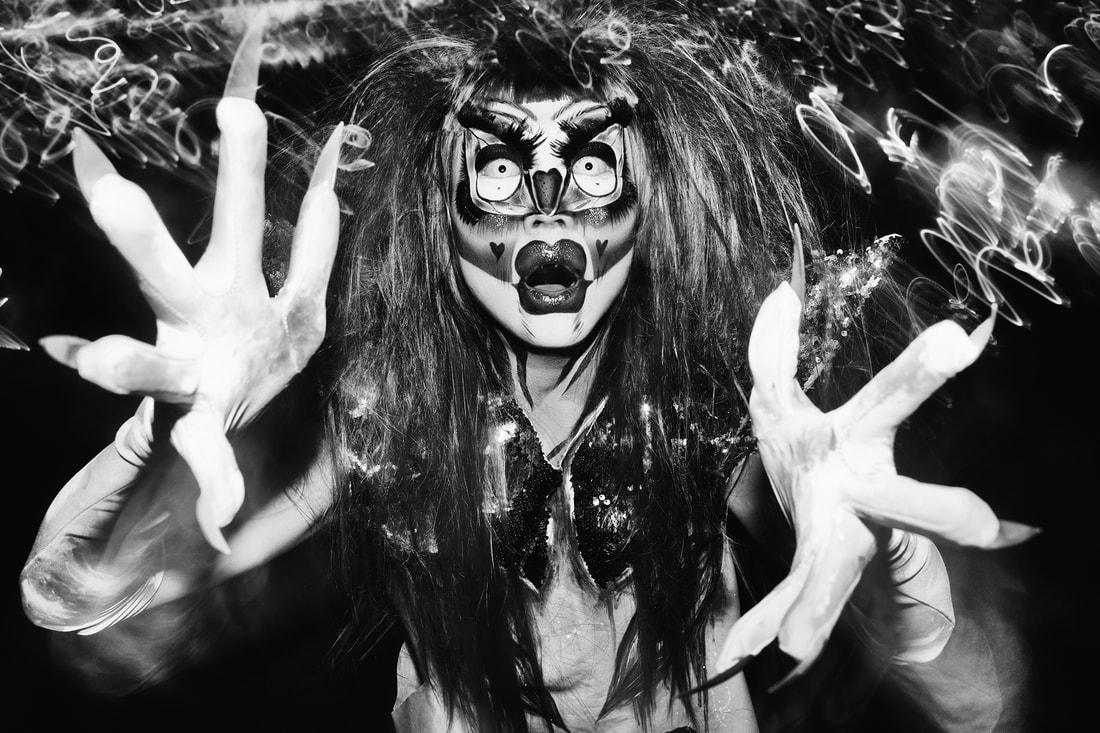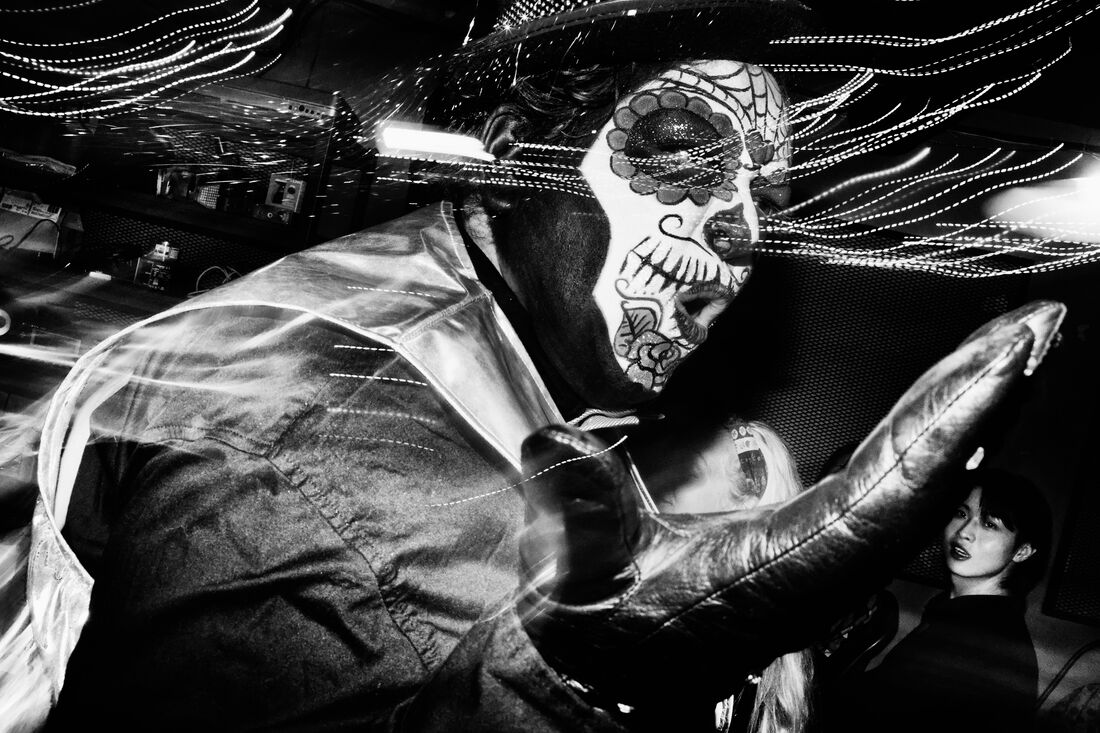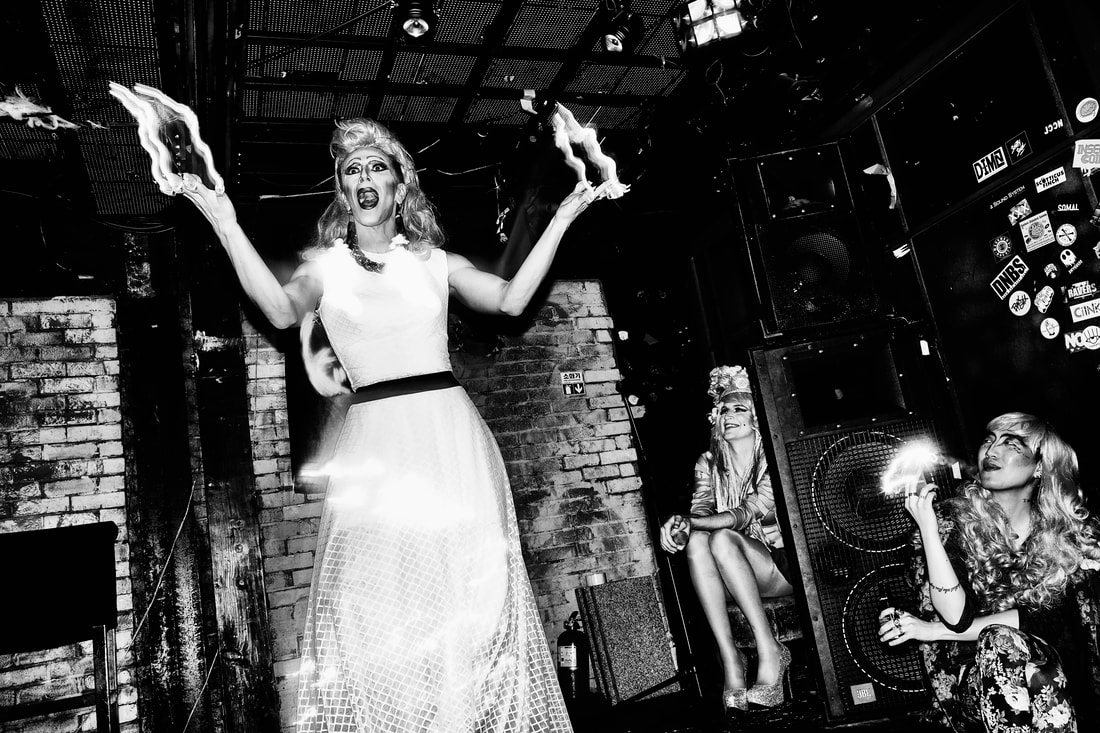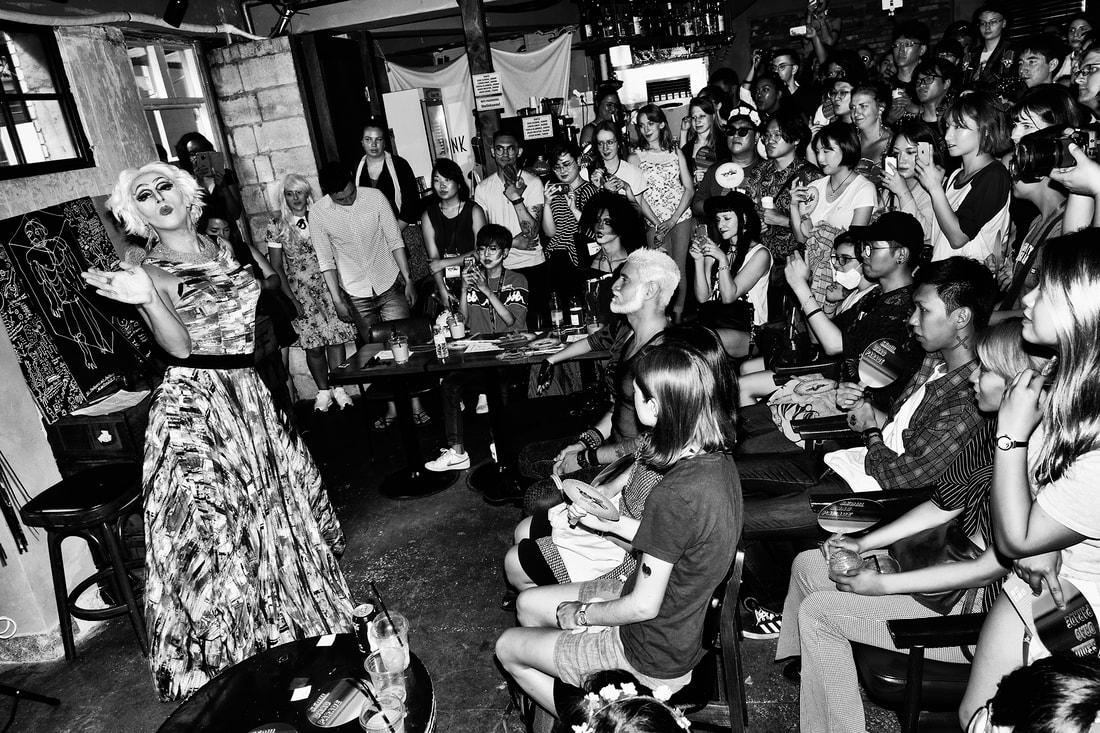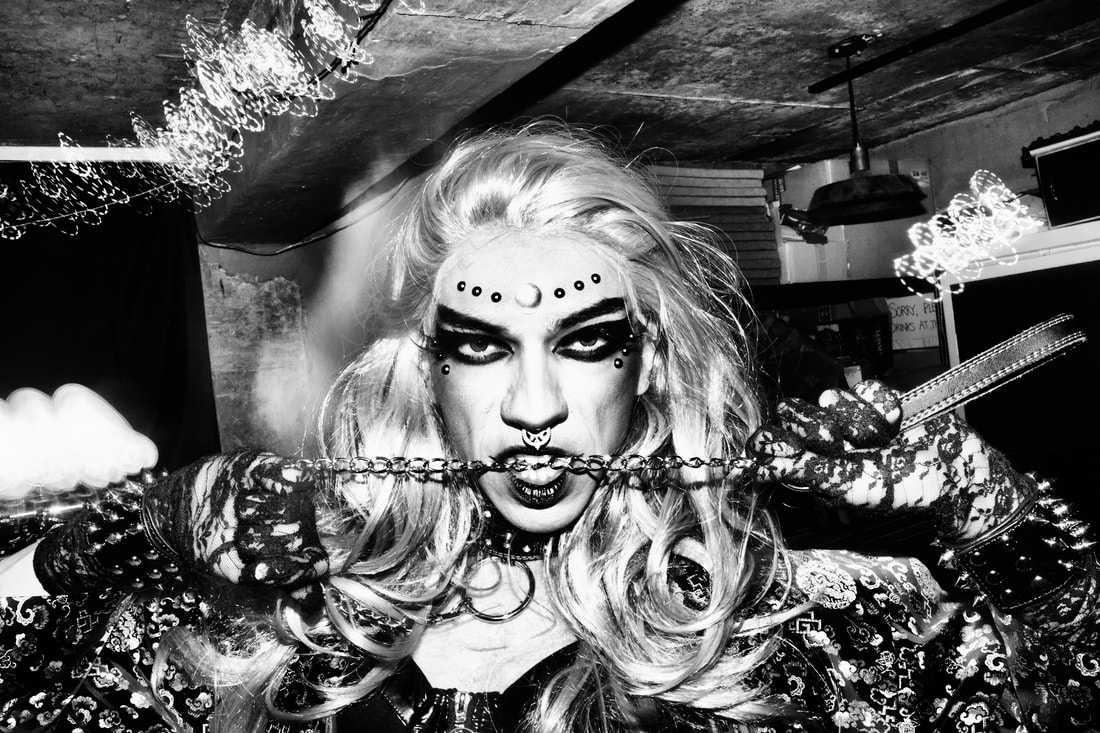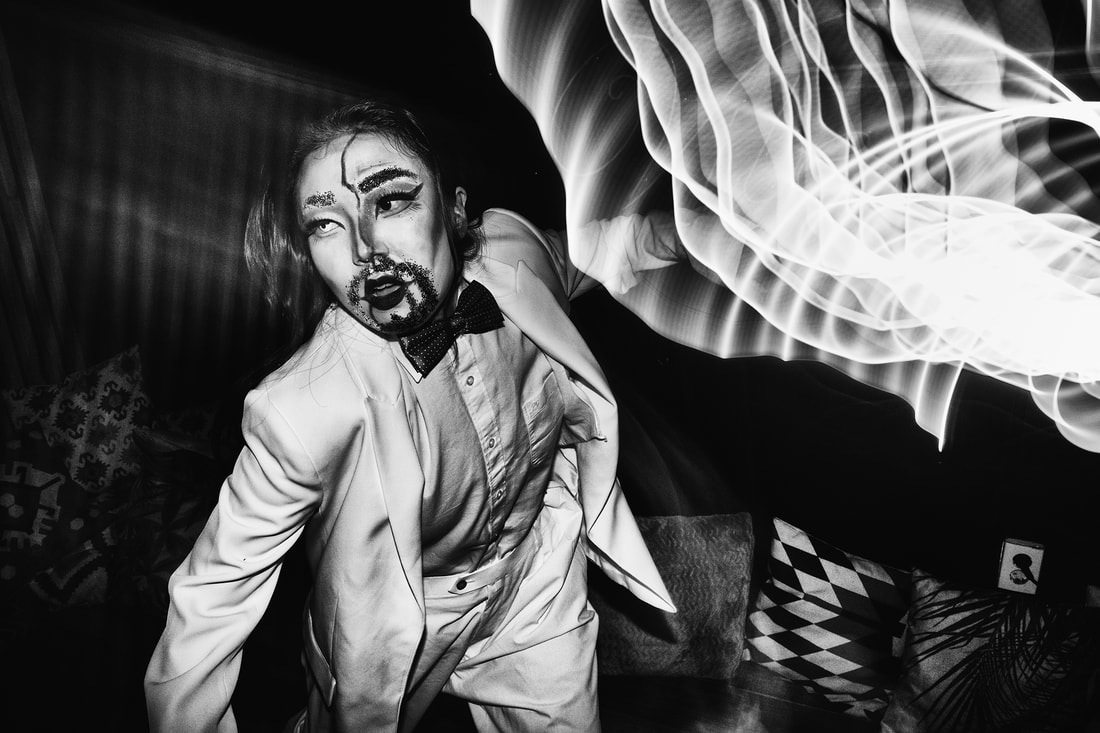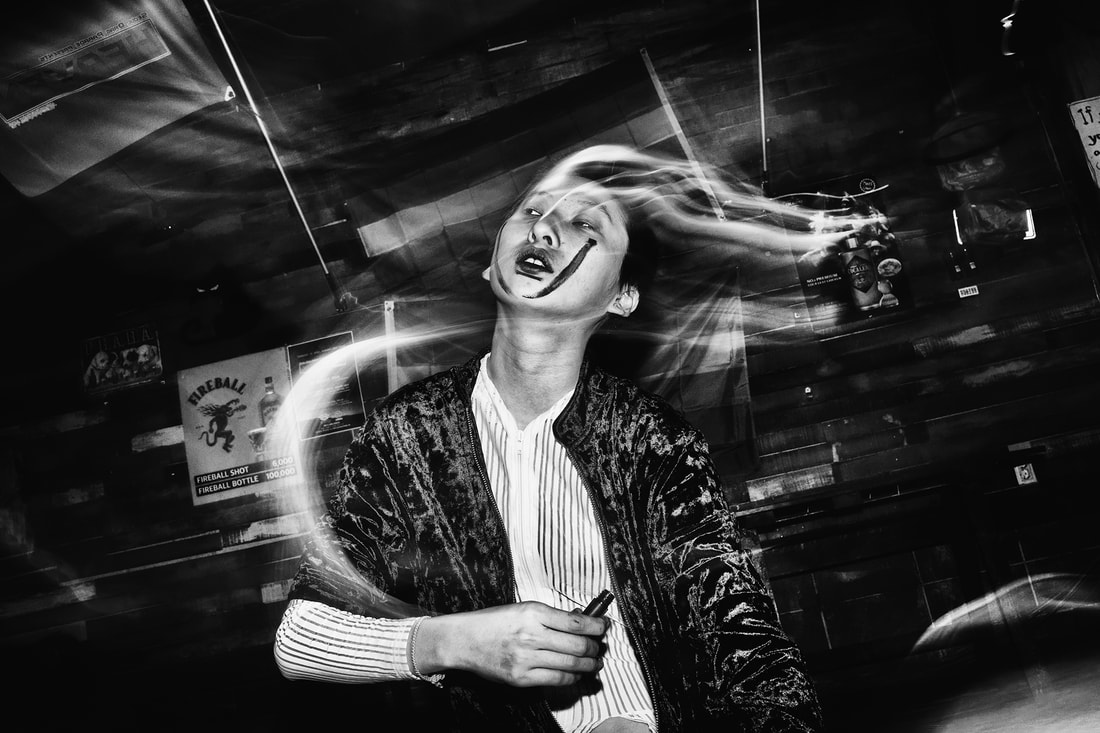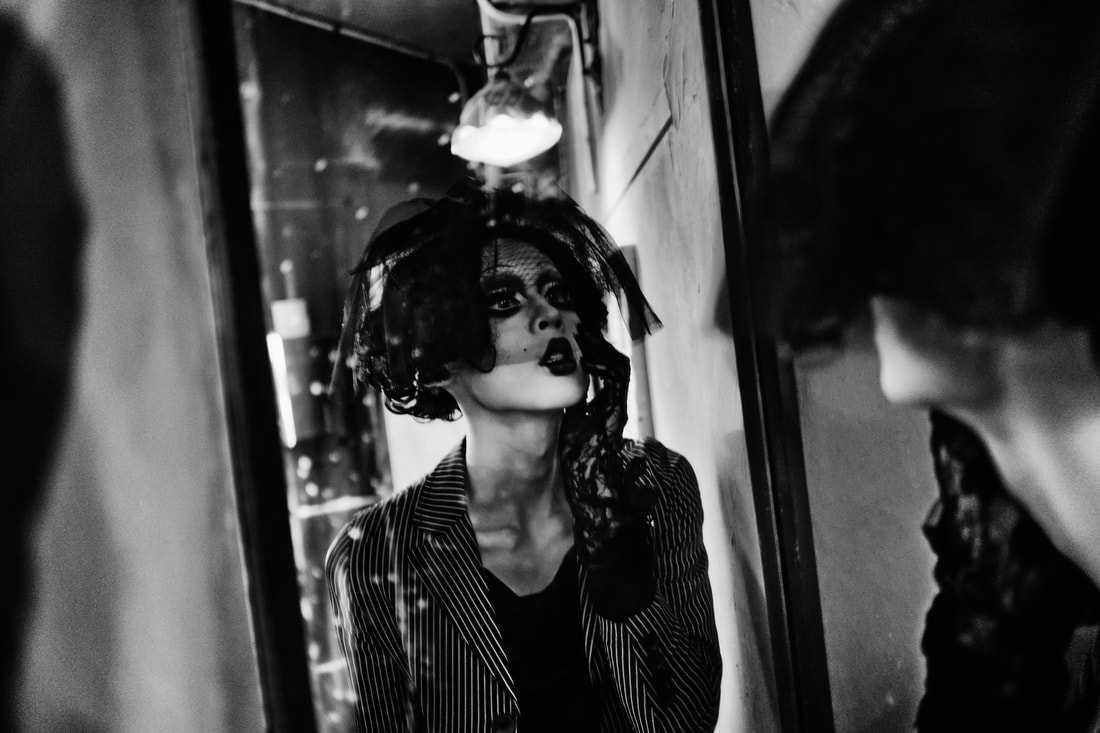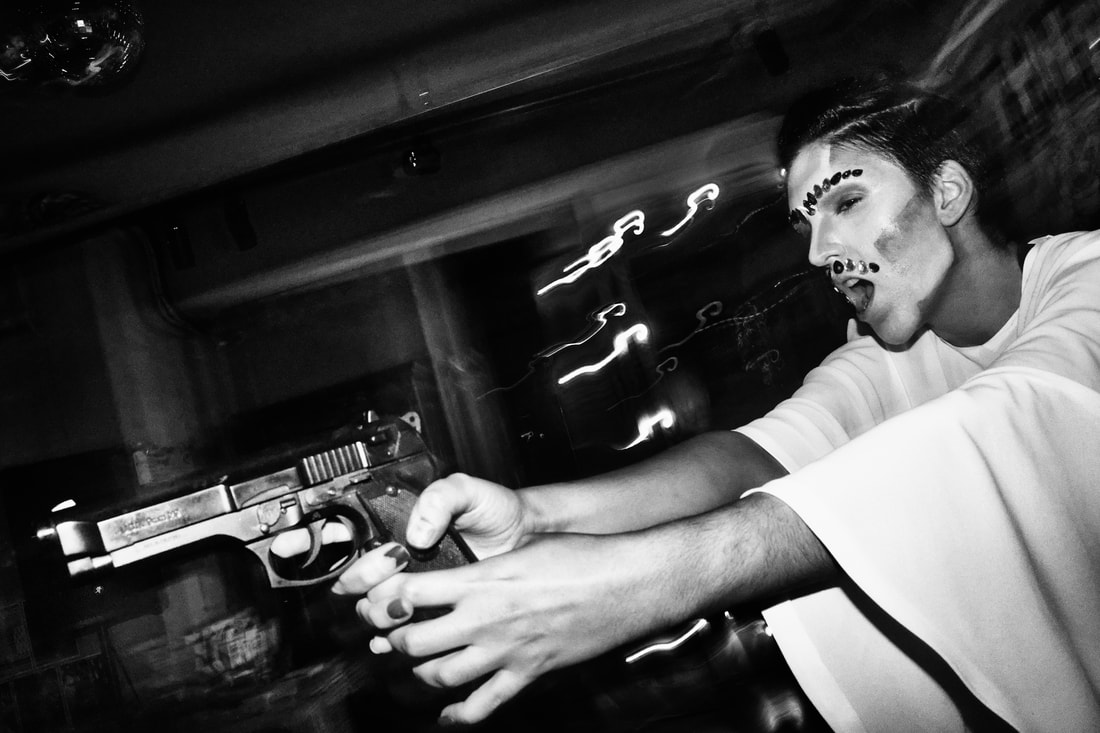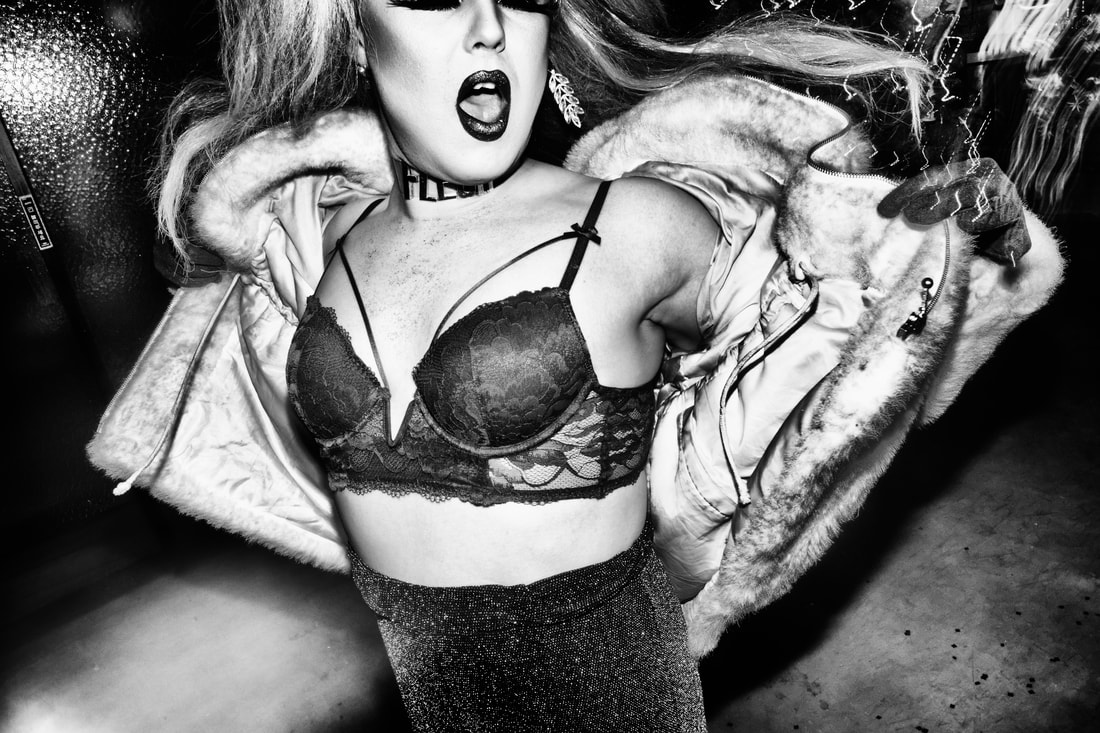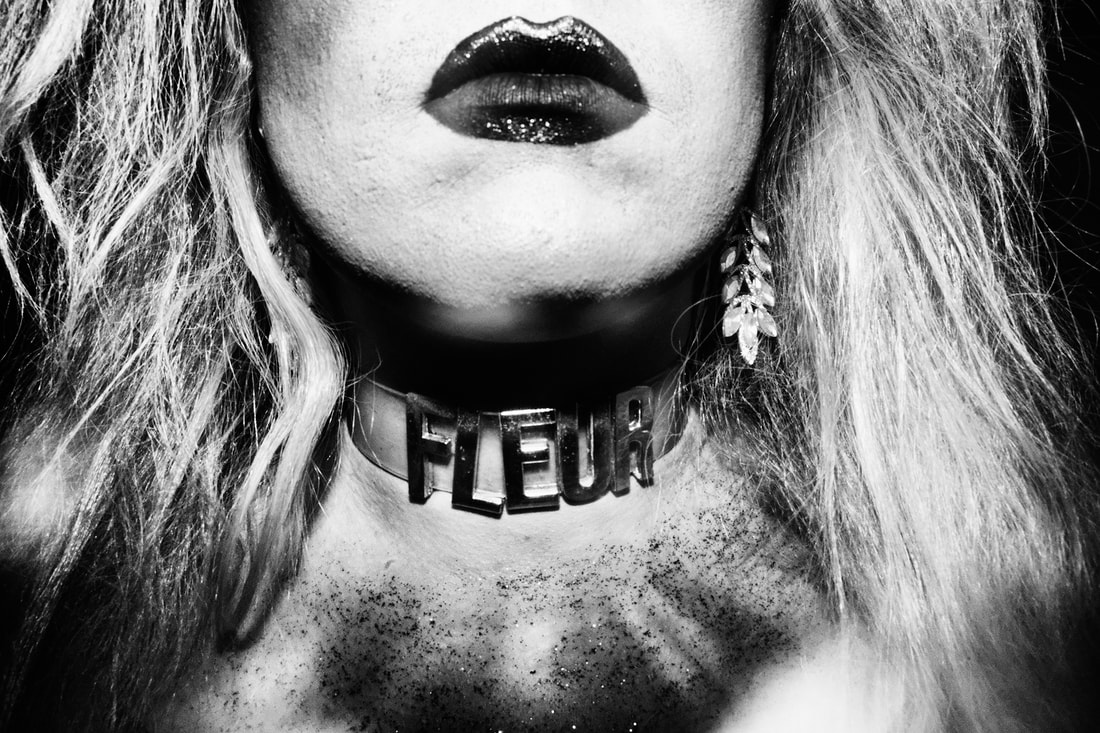|
While the LGBTQ+ community remains a predominantly hidden part of Korean society, areas within Seoul have made progressive strides championing queer rights and lifestyles. In the districts of Itaewon and Hongdae an underground drag scene has seen a huge rise in popularity. This growth is due to the community's ability to create safe spaces for performances, encouraging those who might not otherwise have an outlet to experiment. Freed by both the personal expression and anonymity drag provides, native and international artists take the stage to celebrate unrestricted interpretations of identity. Rebelling against a society steeped in gender norms, each performance broadens the definition of what it means to be human.
Accompanied by the words of each represented artist, these photographs offer a deeper understanding of what drag means to them as individuals. |
LGBTQ+ 커뮤니티가 한국 사회에서는 여전히 숨겨진 부분으로 남아 있지만 서울의 여러 지역은 퀴어의 인권과 라이프스타일을 옹호하는 진보적인 발전을 이루었습니다. 이태원과 홍대 지역에는 언더그라운드 드래그 씬이 큰 인기를 끌고 있습니다. 이런 인기의 성장은 달리 실험할 수단이 없는 사람들을 격려하기 위해 만들어진 안전한 공연 공간을 만들 수 있는 커뮤니티의 능력 덕분입니다. 개인의 표현과 익명성이 제공하는 자유로움 덕분에 국내와 해외 아티스트들이 무대에 올라 제한 없이 정체성의 해석을 기념합니다. 젠더 규범에 젖어있는 사회에 반항하는 모든 공연은 인간이란 무엇인지에 대한 정의를 확장합니다.
아래 사진들은 각 아티스트의 말과 함께 드래그가 본인에게 무엇을 의미하는지 더 깊게 이해할 수 있게 해줍니다. |
"I think drag is very political. While capturing the attention of the general public, it opposes the expectations that society has for individuals based on their biological gender. As I stand against gender dichotomy, drag lets me express my opinion about it." - Azangman
“저는 드래그가 굉장히 정치적이라고 생각합니다. 일반 대중의 관심을 끌면서도 사회가 각 개인의 생물학적 성별을 기반으로 세운 기대에 반대합니다. 성별 이분법에 반대하는 저에게는 드래그가 제 의견을 표현할 수 있게 해줍니다.” - 아장맨
Azangman at Mike's Cabin. Taking the stage in Hongdae at the first Heaven Vol. 1 event, Azangman performs an electrifying set. Sponsored by the Seoul Drag Parade, the monthly show was created to offer the LGBTQ+ community and allies a safe space to enjoy drag and burlesque performances.
Mike’s Cabin에서 아장맨. 제1회 헤븐 볼륨 원 이벤트 중, 홍대에서 무대에 오른 아장맨이 짜릿한 세트를 선보인다. 서울드랙퍼레이드가 후원하는 이 월간 쇼는 LGBTQ+ 커뮤니티와 동맹자들이 드래그 및 벌레스크 공연을 즐길 수 있는 안전한 공간을 제공하기 위해 만들어졌다.
Hurricane Kimchi at the Rabbit Hole. After helping assist a drag makeup workshop in Itaewon, Hurricane Kimchi waits to be interviewed by a local magazine. As an activist and founder of the Seoul Drag Parade, media outlets often seek his opinion on LGBTQ+ issues affecting South Korea.
래빗홀에서 허리케인 김치. 이태원에서 드래그 메이크업 워크숍에 도움을 준 후 허리케인 김치는 지역 잡지의 인터뷰를 기다리고 있다. 활동가이자 서울드래그퍼레이드의 창립자로서 매스컴은 종종 한국에 영향을 미치는 LGBTQ+ 이슈에 대한 그의 의견을 구한다.
"They say I’m like a community queen. I’m into organizing shows that represent diversity, charity events, and stuff for the community. As the founder of Seoul Drag Parade, I want to create spaces in Seoul where all drag artists can be united and be friends. Being competitive or jealous of each other is counterproductive." - Hurricane Kimchi
“사람들이 제가 커뮤니티 퀸과 같다고 해요. 저는 다양성을 대표하는 쇼, 자선 행사, 커뮤니티를 위한 것들을 만드는 것에 관심이 있습니다. 서울드래그퍼레이드의 창립자로서 저는 서울에 모든 드래그 아티스트들이 화합하고 친구가 될 수 있는 공간을 만들고 싶어요. 서로 경쟁하고 질투하는 것은 오히려 역효과를 낳습니다.” - 허리케인 김치
“Drag is an art form where all my creative interests meet. I think it’s important to perform because it most directly rebels against the gender norms built-up by this society. It shows how society's perception of gender is fragile and easy to trick. Another reason I do drag is that it pisses people off and is basically a big middle finger to what people consider ‘normal.’” - Hoso Hailey Sodomite
“드래그는 제 모든 창의적 관심사가 만나는 예술 형식입니다. 사회가 만들어 놓은 젠더 역할에 가장 직접적으로 반대하기 때문에 공연하는 것이 중요하다고 생각해요. 젠더에 대한 사회 인식이 얼마나 연약하고 속이기 쉬운지를 보여줍니다. 제가 드래그를 하는 또 다른 이유는 이것이 사람들을 화나게 하고 사람들이 일방적으로 ‘정상’이라고 생각하는 것을 향해 가운데 손가락을 치켜세우는 것과 같아서입니다.” - 호소테라토마
“Drag is a way to see ourselves through each other’s queer art. With it, we stay visible as queer people in a heteronormative society. We show the world that we are resilient no matter how much hate we face in this world. It means everything to me now.” - Jaxter the Taco Master
“드래그는 서로의 퀴어 예술을 통해 우리 자신을 볼 수 있는 수단입니다. 이것을 통해 우리는 이성애 규범 사회에서 퀴어 사람들로 계속 들어납니다. 우리는 이 세상에서 아무리 증오에 직면해도 회복력이 강하다는 것을 세상에 보여줍니다. 이제는 이것이 제 전부입니다.” - 잭스터 더 타코 마스터
"Drag is meaningful to me because it allows me to express myself in so many ways. As a young gay man from a small town, I grew up trying to hide every aspect of me that was feminine or not expected of men. So, drag has become a way for me to express all those things about myself that I kept hidden during my younger years." - Charlotte Goodenough
“드래그는 다양한 방식으로 제 자신을 표현할 수 있게 하기 때문에 제게 의미가 큽니다. 작은 마을에서 자란 젊은 게이 남성으로서 저는 여성적이거나 남자에게 기대되지 않는 제 모든 면을 숨기려고 애쓰며 자랐습니다. 그래서 드래그는 제가 젊을 때 숨겨왔던 그런 모든 면을 표현할 수 있게 해주는 수단입니다.” - 샬롯 굿이너프
Charlotte Goodenough at The Link. Before South Korea's first drag parade, Charlotte Goodenough performs for those gathered to participate. The Seoul Drag Parade was held on May 26, 2018. It attracted around 1,000 attendees and also featured post-events that lasted well into the night.
더링크에서 샬롯 굿이너프. 한국의 첫 드래그 퍼레이드 전, 샬롯 굿이너프가 참여하기 위해 모인 사람들을 위해 공연한다. 서울드래그퍼레이드는 2018년 5월 26일에 개최되었다. 약 1,000명의 참석자들을 끌어 모았고 밤까지 이어진 사후 이벤트도 선보였다.
"I believe drag allows us to question social values and push our boundaries further. We are given a platform in queer spaces that can be used to advocate real change, explore new paths, and make non-conforming people more comfortable with who they are—to see what other possibilities exist. To me, drag is a way to empower myself and also those who can't do it." - Nix
“드래그가 사회적 가치들에 대한 의문을 제기하고 그들의 경계를 더 넓힐 수 있게 한다고 생각합니다. 우리는 퀴어 공간에서 진정한 변화를 옹호하고, 새로운 길을 개척하고, 사회에 부적합하다고 알려진 사람들이 자신의 모습을 있는 그대로 편안하게 받아들일 수 있게, 다른 가능성이 있는지 알아볼 수 있게 하는 데 사용할 수 있는 플랫폼을 제공받습니다. 제게는 드래그가 내 자신과 드래그를 하지 못하는 사람들에게 힘을 실어주는 방법입니다.” - 닉스
"As a genderfluid person, I think drag is the best outlet for me to invoke how I feel about gender. Drag allows me to break gender norms and certain social constructions that need to change. Performing in drag for me is exhilarating. It's a way for me to share a version of myself that I don’t often feel comfortable doing and it makes me feel powerful." - Skim
“저는 젠더플루이드인 사람으로서, 드래그는 제가 젠더에 대해 느끼는 방식을 들어나게 하는 가장 좋은 수단이라고 생각합니다. 드래그는 제가 젠더 규범과 바뀌어야 하는 사회적 구조를 깨뜨릴 수 있게 해줍니다. 제게 드래그 공연하는 것은 짜릿합니다. 제가 평소에 보여주기 불편한 제 모습을 보여주기 때문에 힘이 나게 합니다.” - 스킴
"Drag fucks with meanings that society assigns. It is freedom from anxiety, thoughts and even others. I BELIEVE people can truly know themselves if they try drag just once. Every human needs equality, and a freeness to have evolving thoughts. Often, everyday modern society tries to dismiss those rights. I believe drag can help the lives of everybody." - Pusae Uglywrinkle
“드래그는 사회가 부여한 정의들을 깨부숩니다. 불안, 생각, 심지어 타인으로부터의 자유입니다. 저는 사람들이 드래그를 한번만 시도해보면 진정으로 자신을 알 수 있게 된다고 생각합니다. 모든 사람은 평등과 진화하는 생각을 가질 자유를 필요로 합니다. 종종 일상 현대 사회는 그러한 권리를 무시하려고 합니다. 저는 드래그가 모든 사람의 인생에 도움이 될 수 있다고 생각합니다.” - 푸세이 어글리링클
"The meaning of drag to me is, 'be positive to oneself.' With drag, people dress up and wear a wig to hide themselves, but paradoxically people can also affirm their identities with it. All my complexities and shortcomings become my essence when I’m reborn as Sura. There is nothing to be ashamed of." - Sura
“저에게 드래그의 의미는 ‘자신에게 긍정적이자’입니다. 드래그를 통해 사람들은 옷을 차려입고 가발을 쓰면서 본인을 숨기지만 역설적으로 사람들은 드래그를 통해 자신의 정체성을 확인할 수도 있습니다. 제가 수라로 다시 태어나면 제 모든 복잡함과 단점이 제 본질이 됩니다. 부끄러워할 것 없습니다.” - 수라
"I'm not solely a drag artist and also practice burlesque. I consider them both to be in the same category of cabaret-style performance art. As a whole, I think performance art is important for society because it challenges our concepts of everything—what we hold on to as "normal." As drag challenges gender conventions, performance art can be used to challenge all sorts of other stereotypes, like what it means to be a "hero,” "sexy," or "strong." - Sapphire Reign
“저는 드래그 아티스트일 뿐만 아니라 벌레스크도 합니다. 저는 둘 다 카바레 스타일의 공연 예술에 같은 범주에 속한다고 생각합니다. 전반적으로 공연 예술은 모든 것에 대한 우리의 개념, 즉 우리가 “정상”이라고 부르고 있는 것에 도전하기 때문에 저는 공연 예술이 사회에 중요하다고 생각합니다. 드래그가 젠더 관습에 도전하는 것처럼 공연 예술은 “영웅”, “섹시하다”, 또는 “강하다”가 의미하는 것과 같은 모든 종류의 다른 고정 관념에 도전하는 데 사용될 수 있습니다.” - 사파이어 레인
"I like to say that drag is crossing the line of what is accepted in the world. We still get scrutinized just for wearing a wig, slapping a bit of foundation on, or putting on a dress. While we might be a minority, we have been here for millions of years and will be here for all the years to come. Drag is important because it shows the world community that we are here to stay." - Fleur West
“드래그란 세상이 허용하는 선을 넘는 것이라고 말합니다. 우리는 여전히 가발을 쓰거나, 파운데이션을 조금 바르거나, 드레스를 입는 것만으로도 손가락질을 받습니다. 우리가 소수일지도 모르지만 수백만 년 동안 이곳에 있었고 앞으로도 계속 있을 것입니다. 드래그는 세계에 우리가 여기에 남아있기 위해 존재 하다는 것을 보여주기 때문에 중요합니다.” - 플뢰 웨스트
Fleur West at View 33Before the start of the WhiteLies BurlesqueRevue's Holiday Charity show, Fleur West's signature necklace shines from a light backstage. The event raised over 1.4 million won for DdingDong 띵동, an LGBTQ+ youth crisis center in Seoul.
화이트라이즈 벌레스크 리뷰의 홀리데이 자선 쇼 전에 백스테이지 조명에 플뢰 웨스트의 시그니처 목걸이가 빛난다. 해당 이벤트는 서울의 LGBTQ+ 청소년 위기 센터인 띵동을 위해 140만원 이상을 모금했다.
